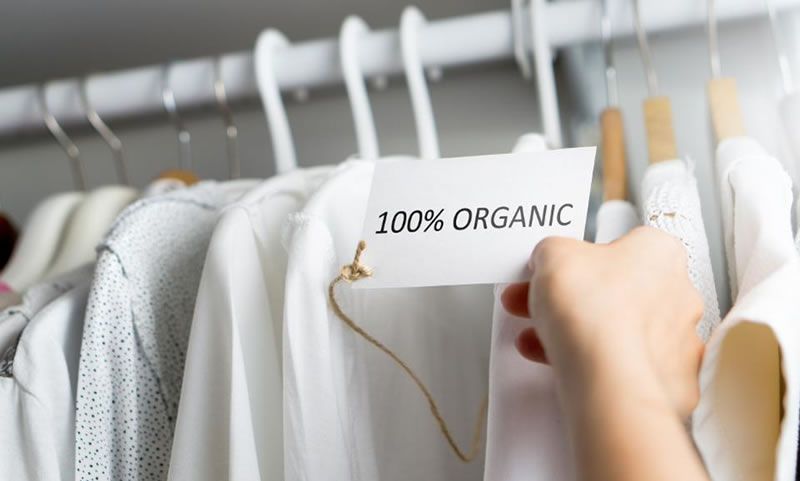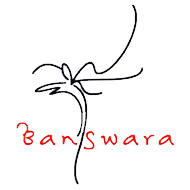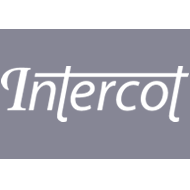Organic Yarn Demand Increases As Textile Raw Material Crisis Escalates

The effects of the global pandemic brought different measures to the agenda in many sectors with the increasing raw material crisis in 2021, disruptions in the supply chain, container crisis, increased freight charges, corruption in India, the world's largest organic cotton producer, and reactions to the cotton picking policy in China's Xinjiang region, European apparel. While the interest of the world's giant brands such as H&M, Inditeks, Lacoste intensified in Turkish cotton, the search for solutions by many associations such as the Turkish Clothing Manufacturers Association has also mobilized the Ministry of Agriculture and Forestry.
It will enable 200 farmers to produce organic cotton on 20 thousand hectares of land in Aydın Söke:
Within the scope of the joint project of TGSD and the Ministry, TGSD President Ramazan Kaya said, “We started a study on the contracted organic cotton farming model together with the Ministry of Agriculture and Forestry. The project we support is carried out by Aydın Provincial Directorate of Agriculture. We are transforming the 20 thousand hectares of cotton field planted in Aydın's Söke region into organic cotton field by taking strength from the exporting companies we work with. The Ministry of Agriculture also provides saplings and some supports. Working with nearly 200 farmers to turn the area into an organic farming area. US and EU customers who make serious purchases from Turkey give a purchase guarantee. We will transfer this 20 thousand hectares of planted area to organic, but there is a 3-year transition period here. Customers will also receive the intermediate product. They will also receive it as certified IC2 cotton from Control Union. In the fourth year, organic cotton production will be started. A yield of around 5 thousand tons is expected in 20 thousand hectares.
Kaya said, “Many brands we have already worked with have switched to traceable fiber practices along with organic farming and good cotton practices on the basis of sustainability. We should not only look at it organically, we also organize traceability here. In other words, we are creating a production chain that includes information about which seed, in which field, by which farmer, and in which yarn factory the product is produced”.
More than 90 percent of organic cotton produced in 19 countries in the world is produced in 5 countries. While around 240 thousand tons of organic cotton is produced annually in the world, Turkey ranks fourth with approximately 23 thousand tons of cotton production. In In India, non-organic cotton was put on the market with fake documents as if it was organic, and in China, cotton picking policies in the Xinjiang Uyghur Autonomous Region led to criticism. For this reason, many famous brands such as Burberry, Adidas, Nike, New Balance and H&M announced that they would stop buying cotton grown in the Xinjiang region.
The developments and news about the evaluation of these and similar opportunities;
-
Knitting Industrialists Association President Fikri Kurt said, “We had a lot of problems with raw materials until March. During this period, many companies that had difficulties in accessing raw materials pressed the button for investment. Nearly 60 companies applied to establish a yarn factory. In the knitting sector, 2,700 knitting machines were ordered last year due to the intensity of the work. Of these, 1,700 were delivered," he said.
-
Ahmet Öksüz, President of Istanbul Textile and Raw Materials Exporters' Association (İTHİB), underlined that large-scale yarn investments have been put into use in the Turkish textile industry, which has a yarn production capacity of approximately 5 million tons, in the last six months. Saying that many companies have made investments, Öksüz is also the Vice Chairman of the Board of Kipaş Holding. He said that they will make an investment of 50 million Euros for Kipaş's cotton yarn facility with an additional 150 tons per day capacity in Kahramanmaraş and that the investment will be commissioned next year.
-
After the $200 million investment announced by Migiboy in September, South Korean Hyosung took action. It continues its preparations for one of the largest direct investments in the history of the Republic. Planning two different investments, both elastane yarn and polyester, on a new land, the company has planned an investment budget of 500 million dollars for the elastane yarn investment.
-
Continuing its negotiations with both the Ministry of Industry and the Presidential Investment Office, Hyosung Istanbul Tekstil focused on 4 regions, Tekirdağ, Bursa, Adana and Edirne, for the said investment. In addition to this investment, Hyosung Istanbul Tekstil, which will make a new line investment of 80 million dollars in its existing facilities in Tekirdağ, aims to increase its employment from 580 to 1,500 and its income from 355 million dollars to 2 billion dollars with two investments. The investment, which is planned to start in March 2022, is expected to be completed in 1.5 years.
After the hemp rope weaving trainings given in Rize in 2021, 6 producers started hemp production in a 5 decare area. By producing yarns with vegetable fibers from hemp, healthy and special woven fabrics will be obtained.
OTHER ARTICLES
- Advantages and Usage Areas of Culvitation of Hemp
- The Place of Hemp in Yarn and Textile Industry
- The Place of Hemp in Yarn and Textile Industry
- What is Linen and Linen Production in Turkey
- Sustainability in The Textile Industry
- Tthe Global Effect of The Pandemic and Tthe Evaluation of The Textile Sector
- Naturel Fibers and Organic Yarn Production
- Hemp Production in Turkey, A Historical Brief and Global Hemp Market
- European Flax Certificate
- Search for Sustainable Production in Textile Raw Material and the Hemp Yarn
- Linen and Hemp's Simila and Different Aspects
- Hemp Fiber and Fabric Production
- Ecological Hemp Production
- Sustainability Studies in the Textile Industry - 2021
- What is Needed for Sustainability in the Textile Industry ?
- Organic Yarn Demand Increases As Textile Raw Material Crisis Escalates
- 2021 Data and 2022 Expectations for Ready-made Clothing Industry and Textile Raw Materials
- Fiber and Hemp Yarn Production and Yarn Export in the Turkish Textile Industry








Filofibra Pazarlama A.Ş.
FILOFIBRA Pazarlama A.Ş. has been providing service to Turkish Textile market in the sale of fiber, yarn and fabric in Istanbul since 1986.
Address
-
Filofibra Pazarlama A.Ş
-
Levent Cad. Sülün Sok. No: 34 1. Levent, Istanbul
-
Tel : +90 212 283 3860/ 9 Hat
-
Fax : +90 212 283 3859
-
Email - This email address is being protected from spambots. You need JavaScript enabled to view it.
Address Abroad
-
Filofibra SA
-
Riva Caccia 1 / A Central Park Bldg. 6900 Lugano / Switzerland
-
Tel - +41 91 985 78 11
-
Fax - +41 91 985 78 08 - 09 - 10
-
Email - This email address is being protected from spambots. You need JavaScript enabled to view it.

